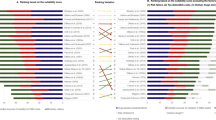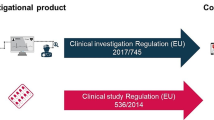Abstract
Recently, dramatic price increases by several pharmaceutical companies have provoked public outrage. These scandals raise questions both about how pharmaceutical firms should be regulated and about how pharmaceutical executives ethically ought to make pricing decisions when drug prices are largely unregulated. Though there is an extensive literature on the regulatory question, the ethical question has been largely unexplored. This article defends a Kantian approach to the ethics of pharmaceutical pricing in an unregulated market. To the extent possible, pharmaceutical companies must price drugs so that those who genuinely need them can get them without financial ruin. This requirement is an ethical side constraint, like the moral prohibitions on deception and theft, that takes precedence over a business’s interest in maximizing profit. That said, the requirement’s application is sensitive to the need to recoup the costs of research and to produce a return that financially justifies the original investment. It may not be either feasible or desirable for government to attempt to enforce the ethical requirements concerning just pharmaceutical pricing. Either price regulation or subsidy could fulfill government’s obligation to protect patients from being objectionably vulnerable to pricing decisions by private companies.
Similar content being viewed by others
Notes
An exception is Spinello (1992), who argues for an ethical duty of justice to price “truly essential” drugs so as to make them widely available. Spinello’s argument relies on Rawls’s theory of justice, which is a normative political theory, not a theory of individual or corporate ethics, so it is unclear whether Spinello’s reasoning supports a conclusion about ethics or about what law should be. Hemphill (2010) argues that large price increases for orphan drugs are unethical if these price increases prevent people from getting access to the drug. He does not address the question whether price increases are ethical if assistance programs make the drugs available to patients at prices they can pay at the cost of financial ruin. There has been some discussion of the narrower question whether pharmaceutical companies have an ethical obligation to make drugs available to poor people in developing countries. See, e.g., Werhane and Gorman (2005).
In China, drugs on “List A” are completely covered by insurance, while drugs on “List B” require patients to cover about 20 % of the cost out of pocket. Many innovative drugs are not included on either list and must be paid for out of pocket. (Liu et al. 2017).
As a stark example, even if there were no generally recognized international law, it would be wrong to provide financial returns to shareholders by committing piracy on the high seas.
Others have criticized the current regulatory arrangement. See, e.g., Gagnon (2013).
Huebner (2014) takes a different approach. He distinguishes moral obligations from justified legal obligations and argues that a moral obligation to provide medicine at low prices could not be grounded on a duty of easy rescue. Huebner does not offer a positive ethical argument in favor of pharmaceutical companies’ practices.
Vernon (2005) presents an economic model which suggests that imposition of price regulation in the U.S. pharmaceutical industry would reduce research and development expenditures by between 23.4 and 32.7%.
If a transfer from patients to a pharmaceutical company has no effects other than the transfer of wealth, and if patients are on average less wealthy than the firm’s shareholders, the transfer will reduce aggregate welfare. Wealth has diminishing marginal utility: a gain of 1000 ducats or 1000 dollars typically improves the welfare of a poor person more than it improves the welfare of a rich person (Bernoulli 1954 [1738]).
Consider an off-duty doctor who discovers a wealthy person alone and facing a potentially deadly medical emergency. The doctor can save this person via a simple procedure that will cost the doctor nothing but a few minutes of her time. The doctor offers to save the person for 10 % of the patient’s wealth. The patient gains far more from this transaction than the doctor does, yet it is the doctor who exploits the patient. For similar examples, see Meyers (2004); Wertheimer (1996 p. 223).
Whether the formulations are equivalent is controversial. Kant thought that they are (Kant 1996 [1785]: Ak. 4:435), and I agree.
To be able to set ends via rational choice, one needs a realistic hope of achieving them (Ripstein 2009). I cannot set the end of jumping over a ten-story building, because I know that I cannot do this.
There is an exception to the prohibition: one may undermine the effectiveness of a person’s agency in order to preserve the existence of a person’s rational agency. So, for instance, if someone is having a stroke, and the only way to get this person to a doctor is to steal a car, stealing a car is morally permissible. (Of course, one must return the stolen car after the emergency is over.)
Pallikkathayil (2010) argues that in a well-governed society, the duty not to treat others merely as means has two components: to refrain from violating people’s legal rights, and to avoid treating people in ways that show contempt for their status as equal persons. This is an incomplete analysis of the “mere means” principle for societies that do not take adequate public measures to protect people from private domination.
This account aligns with Sample’s (2003) account in that it allows for the possibility of wrongful exploitation in a perfectly competitive labor market.
Compare: if two people attempt to kill the same victim, one with poison at seven o’clock and one with a pistol at eight, we do not excuse the shooter by saying that the bullet made no difference. The murderer’s bullet causes the victim’s death, even though the victim would have died anyway. Likewise, the stingy homeowner’s decision to pay only the market wage causes the gardener’s poverty, even though the gardener would have been poor if the homeowner had made no offer.
For argument that American corporate law, including Delaware law, does not require shareholder value maximization, see Stout (2008).
Strudler (2017) argues that in all corporations, executives’ obligation to shareholders is to provide a reasonable return, not to maximize profits. Though I am sympathetic to his reasoning, I do not rely on his argument. My conclusion here differs from Strudler’s in that it only applies to the pharmaceutical industry, but it does not only apply to pharmaceutical corporations. Pharmaceutical companies with other legal structures, e.g. partnerships or worker cooperatives, would be morally permitted to seek a reasonable rate of return on investment, but not to seek a maximal return at the expense of patient-customers.
In an economy with radical moral failures, in which it is morally wrong to invest in most companies, the analysis of ethical pricing will have to be more complex. It will be necessary to address the difficult question whether it is permissible to raise prices on desperate customers to compete for capital from investors who are indifferent to the permissibility of their investments, or whether ethical firms must instead seek capital from investors who are willing to accept a lower rate of return to avoid wrongdoing.
Some financial assistance programs are arguably deceptive public relations schemes. The paperwork burdens they impose on both patients and pharmacists greatly reduce the number of patients who successfully apply (Parker-Lue et al. 2015, p. 195).
Do not read the word “maximize” and think, “This is consequentialism!” Non-consequentialist ethical theories can consider the consequences of actions and can even call for maximizing some good consequence in a specific context. What distinguishes consequentialism from non-consequentialist ethics is an exclusive focus on consequences.
Indeed, one cannot make such a promise even if doing so would be to one’s material advantage. If desert rescuers were to demand that rescued people promise to become indentured servants in exchange for being rescued, these promises would be morally invalid. The non-domination principle does not derive its force from the likelihood that non-domination will improve people’s welfare.
A relevant consideration is that both regulation of pharmaceutical pricing and government funding of drug purchases can have unintended consequences. As an example of the former, price ceilings on cancer drugs have prevented some FDA-approved drugs from being marketed in some European countries, possibly resulting in lower survival rates from some cancers. As an example of the latter, the US Medicare and Medicaid policy of reimbursing the cost of a drug plus 6% for practice expenses has given medical practices an incentive to use costlier brand-name drugs instead of generics (Parker-Lue et al. 2015).
References
Balotsky, Edward R. 2009. Where strategy and ethics converge: Pharmaceutical industry pricing policy for Medicare Part D beneficiaries. Journal of Business Ethics 84 (Supp. 1): 75–88.
Bernoulli, Daniel. 1954 [1738]. Exposition of a new theory of the measurement of risk. Louise Sommer, trans. Econometrica 22: 23–36.
Bowie, Norman E. 1999. Business ethics: A Kantian perspective. Malden: Blackwell.
Brandt, Jaden, Brenna Shearer, and Steven G. Morgan. 2018. Prescription drug coverage in Canada: A review of the economic, policy and political considerations for universal pharmacare. Journal of Pharmaceutical Policy and Practice 11: 28.
Clifford, Stephanie. 2017. Jury selection in Martin Shkreli trial begins with name calling. The New York Times (June 26).
De George, Richard T. 2005. Intellectual property and pharmaceutical drugs: An ethical analysis. Business Ethics Quarterly 15: 549–575.
DiMasi, Joseph A., Henry G. Grabowski, and Ronald W. Hansen. 2016. Innovation in the pharmaceutical industry: New estimates of R&D costs. Journal of Health Economics 47: 20–33.
Elegido, Juan Manuel. 2009. The just price: Three insights from the Salamanca school. Journal of Business Ethics 90: 29–46.
Elegido, Juan Manuel. 2015. The just price as the price obtainable in an open market. Journal of Business Ethics 130: 557–572.
Essert, Christopher. 2016. Property and homelessness. Philosophy & Public Affairs 44: 266–295.
Friedman, Milton. 1970. The social responsibility of business is to increase its profits. The New York Times Magazine, September 13.
Gagnon, Marc-André. 2013. Corruption of pharmaceutical markets: Addressing the misalignment of financial incentives and public health. Journal of Law, Medicine, & Ethics 41: 571–580.
Gilabert, Pablo. 2010. Kant and the claims of the poor. Philosophy and Phenomenological Research 81: 382–418.
Hemphill, Thomas A. 2010. Extraordinary pricing of orphan drugs: Is it a socially responsible strategy for the U.S. pharmaceutical industry? Journal of Business Ethics 94: 225–242.
Hill, Thomas. 1980. Humanity as an end in itself. Ethics 91: 84–99.
Huebner, James M. 2014. Moral psychology and the intuition that pharmaceutical companies have a ‘special’ obligation to society. Journal of Business Ethics 122: 501–510.
Hughes, Robert C. 2018. Imprisonment and the right to freedom of movement. In Rethinking punishment in the era of mass incarceration, ed. Chris W. Surprenant. New York: Routledge.
Kant, Immanuel. 1996 [1785]. Groundwork of the metaphysics of morals. In Immanuel Kant, Practical philosophy. Mary J. Gregor, trans. Cambridge, UK: Cambridge University Press.
Koehn, Daryl, and Barry Wilbratte. 2012. A defense of the Thomistic concept of the just price. Business Ethics Quarterly 22: 501–526.
Korsgaard, Christine. 1996. Creating the kingdom of ends. Cambridge: Cambridge University Press.
Liu, Gordon G., Nan Luo, and Zhongyun Zhao. 2017. Drug pricing and health technology assessment in China and other Asian markets. In China’s healthcare system and reform, ed. Lawton Robert Burns and Gordon G. Liu. Cambridge: Cambridge University Press.
London, Alex John. 2012. A non-paternalistic model of research ethics and oversight: Assessing the benefits of prospective review. Journal of Law, Medicine, & Ethics 40: 930–944.
Maitland, Ian. 2002. Priceless goods: How should life-saving drugs be priced? Business Ethics Quarterly 12: 451–480.
Meyers, Chris. 2004. Wrongful beneficence: Exploitation and third world sweatshops. Journal of Social Philosophy 35: 319–333.
Nguyen, Tuan Anh, Rosemary Knight, Elizabeth Ellen Roughead, Geoffrey Brooks, and Andrea Mant. 2015. Options for pharmaceutical pricing and purchasing: Issues for low- and middle-income countries. Health Policy and Planning 30: 267–280.
O’Neill, Onora. 1980. The moral perplexities of famine relief. In Matters of life and death, ed. Tom L. Beauchamp and Tom Regan. Philadelphia: Temple University Press.
O'Neill, Onora. 1985. Between consenting adults. Philosophy and Public Affairs 14: 252–277.
Pallikkathayil, Japa. 2010. Deriving morality from politics: Rethinking the formula of humanity. Ethics 121: 116–147.
Parker-Lue, Sara, Michael Santoro, and Greg Koski. 2015. The ethics and economics of pharmaceutical pricing. Annual Review of Pharmacology and Toxicology 55: 191–206.
Pettit, Philip. 1997. Republicanism: A theory of freedom and government. Oxford: Clarendon Press.
Pollack, Andrew and Sabrina Tavernise. 2015. Valeant’s drug price strategy enriches it, but infuriates patients and lawmakers. The New York Times (October 4).
Popken, Ben. 2016. Mylan’s upgraded EpiPen torn apart by experts. NBC News (September 30), available at https://www.nbcnews.com/business/consumer/mylan-says-it-upgraded-epipen-2009-so-experts-looked-inside-n652651. Accessed 27 Nov 2019.
Ripstein, Arthur. 2009. Force and freedom. Cambridge: Harvard University Press.
Rosenberg, Alex. 2004. On the priority of intellectual property rights, especially in biotechnology. Politics, Philosophy & Economics 3: 77–95.
Sample, Ruth J. 2003. Exploitation: What it is and why it’s wrong. Oxford: Rowan & Littlefield.
Shiffrin, Seana Valentine. 2007. Intellectual Property. In A companion to contemporary political philosophy, ed. Robert E. Goodin, Philip Pettit, and Thomas W. Pogge. Chichester: Blackwell.
Smith, Jeffrey, and Wim Dubbink. 2011. Understanding the role of moral principles in business ethics: A Kantian perspective. Business Ethics Quarterly 21: 205–231.
Sonderholm, J. 2009. Paying a high price for low costs: Why there should be no legal constraints on the profits that can be made on drugs for tropical diseases. Journal of Medical Ethics 35: 315–319.
Spinello, Richard A. 1992. Ethics, pricing, and the pharmaceutical industry. Journal of Business Ethics 11: 617–626.
Stout, Lynn A. 2008. Why we should stop teaching Dodd v. Ford, Virginia Law & Business Review 3: 163–176.
Strudler, Alan. 2017. What to do with corporate wealth. The Journal of Political Philosophy 25: 108–126.
Valdman, Mikhail. 2009. A theory of wrongful exploitation. Philosophers’ Imprint 9 (6): 1–14.
Vernon, John A. 2005. Examining the link between price regulation and pharmaceutical R&D investment. Health Economics 14: 1–16.
Weinrib, Ernest. 2003. Propter honoris respectum: Poverty and property in Kant’s system of rights. Notre Dame Law Review 78: 795–828.
Wendler, David, and Annette Rid. 2017. In defense of a social value requirement for clinical research. Bioethics 31: 77–86.
Werhane, Patricia H., and Michael Gorman. 2005. Intellectual property rights, moral imagination, and access to life-enhancing drugs. Business Ethics Quarterly 15: 595–613.
Wertheimer, Alan. 1996. Exploitation. Princeton: Princeton University Press.
Wood, Allen W. 1999. Kant’s ethical thought. Cambridge: Cambridge University Press.
Acknowledgments
I am grateful to Thomas Donaldson, Alan Strudler, all the members of the 2017-2018 Wharton LGST junior faculty workshop, and audiences at the 2019 Society for Business Ethics Annual Meeting and the 2019 Society for Applied Philosophy Annual Conference for comments on previous drafts.
Author information
Authors and Affiliations
Corresponding author
Ethics declarations
Conflict of Interest
The author declares that he has no conflict of interest.
Additional information
Publisher’s Note
Springer Nature remains neutral with regard to jurisdictional claims in published maps and institutional affiliations.
Rights and permissions
About this article
Cite this article
Hughes, R.C. Pricing Medicine Fairly. Philosophy of Management 19, 369–385 (2020). https://doi.org/10.1007/s40926-020-00135-z
Published:
Issue Date:
DOI: https://doi.org/10.1007/s40926-020-00135-z




